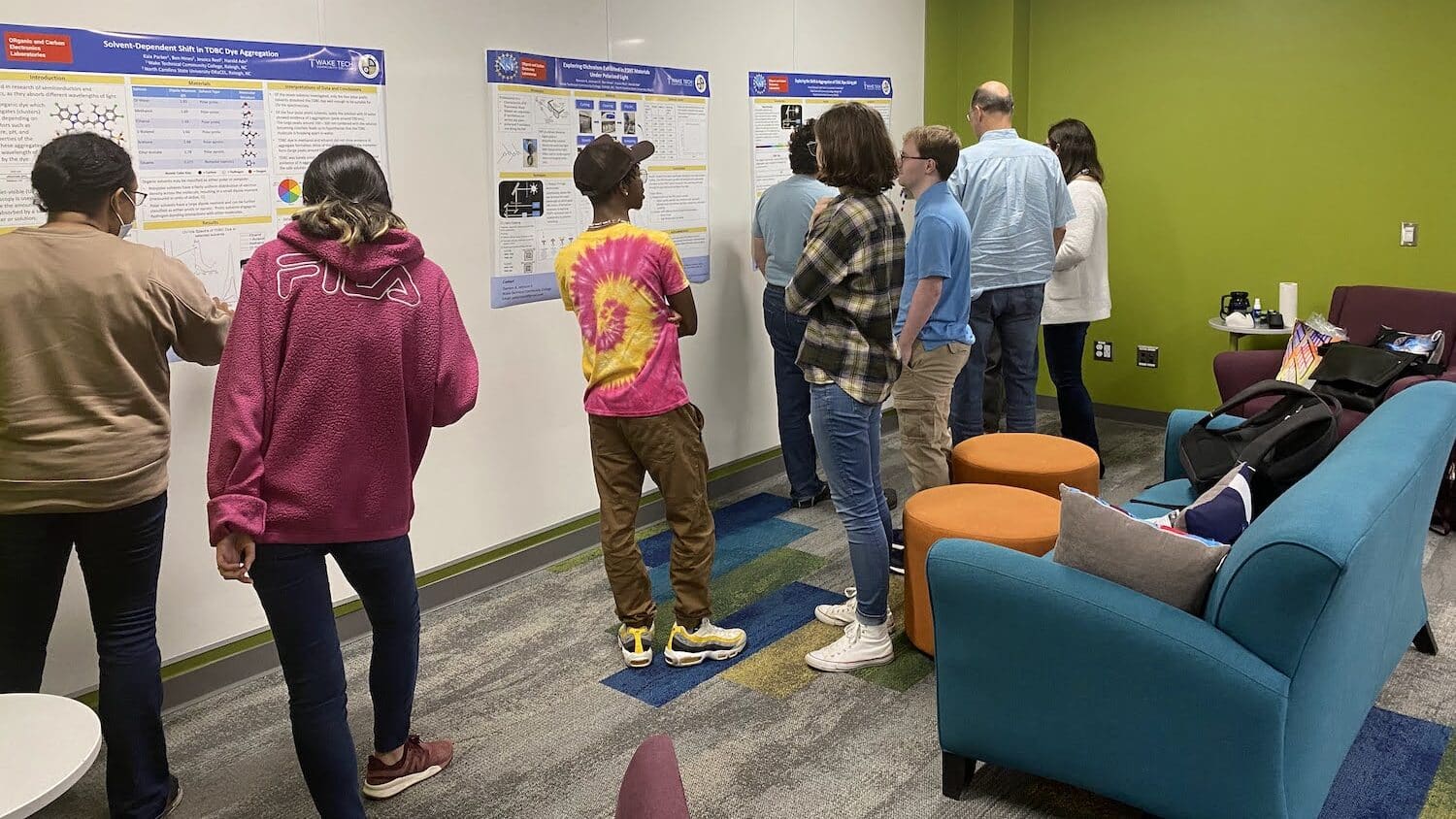Wake Tech Students Gain STEM Research Experience at NC State
This post was authored by Kim Gervase, director of strategic education and industry partnerships for ORaCEL.
On April 14, Wake Tech students presented their research to an audience of professors, graduate students and postdocs at NC State. This was the culminating event for a 10-week internship program in which NC State’s Carbon Electronics Cluster partnered with Wake Tech to provide seven students in Wake Tech’s STEM Academic Research & Training (START) program paid internships in a combination of on-site and remote research experiences.
Their projects were based in three labs run by Harald Ade, Goodnight Innovation Distinguished Professor of Physics; Aram Amassian, professor of materials science and engineering; and Ryan Chiechi, associate professor of chemistry. All three faculty are members of the Chancellor’s Faculty Excellence Program in the Carbon Electronics Cluster.
Damien Johnson, a first-year student at Wake Tech, applied to be a START intern because of his interest in STEM and his desire to transfer into NC State’s aerospace engineering program. He found that research brought to life what he is learning in his classes.
“Being in START has opened my eyes to what research scientists really do,” he said. “After this semester, I feel confident that I can perform research and am comfortable presenting my findings to others.”

Wake Tech START projects are done in partnership with local universities and industry partners. The Carbon Electronics Cluster faculty were inspired to apply for these positions because they feel that the community colleges in the area are an underutilized pipeline of talented students who can benefit from early research experiences before they get to campus.
“We hope that by giving interested students an insight into what research is and providing them access to work alongside graduate students in our world-class facilities, we can spark a desire to pursue rewarding careers in STEM that can be enriching to them personally as well as valuable to society,” Amassian said.
The START program is funded with a $1.4 million grant from the National Science Foundation, along with contributions from Terracon Foundation, the Christman Company, Clancy & Theys, Brooks Pierce and DeLisa Alexander. The students are hired and paid for a 60-hour commitment that includes 20 hours of training and community-building and 40 hours of research and technical poster-building. All students were assigned a faculty mentor at Wake Tech and were also paired with a graduate student or professor in the Carbon Electronics Cluster who worked closely with them to develop a project, teach them how to use the necessary instrumentation to collect data, and create a poster showcasing their technical work.
“The START Showcase gives our interns practice presenting their work, the confidence that they are part of the STEM community and the joy of being the ‘expert’ in the room,” said Jackie Swanik, associate dean of mathematics, sciences and engineering at Wake Tech.
For more information on the START program or to get involved as a partner, visit waketech.edu/START.